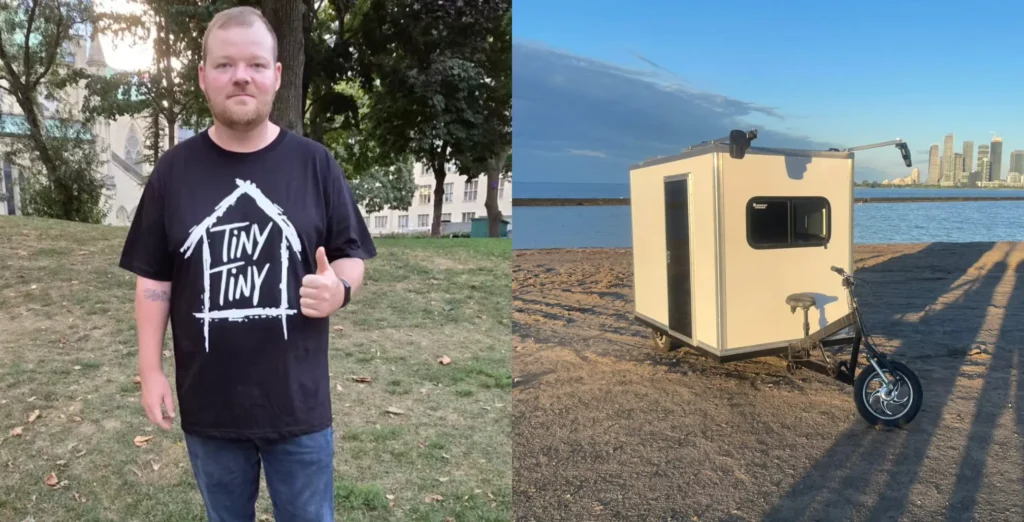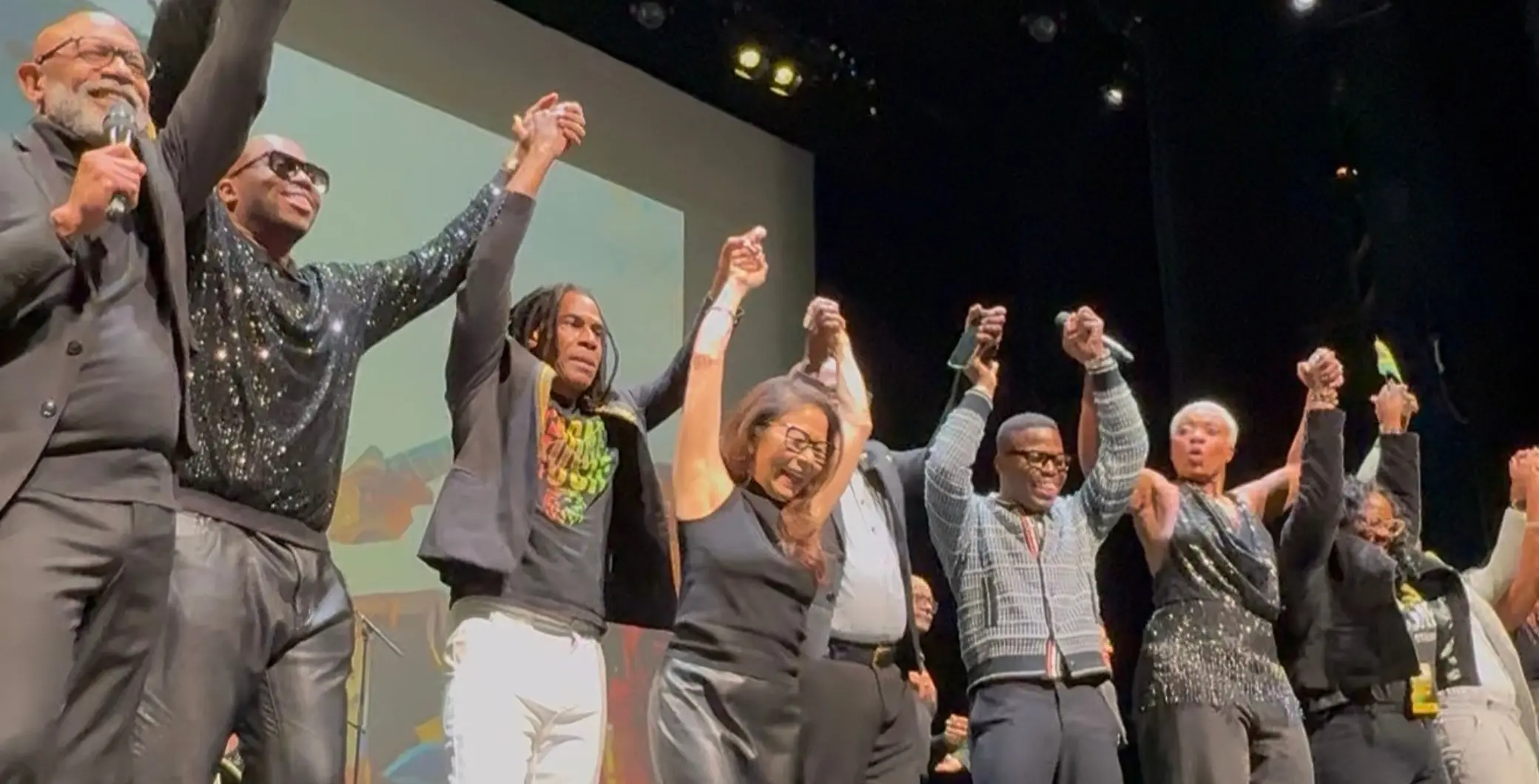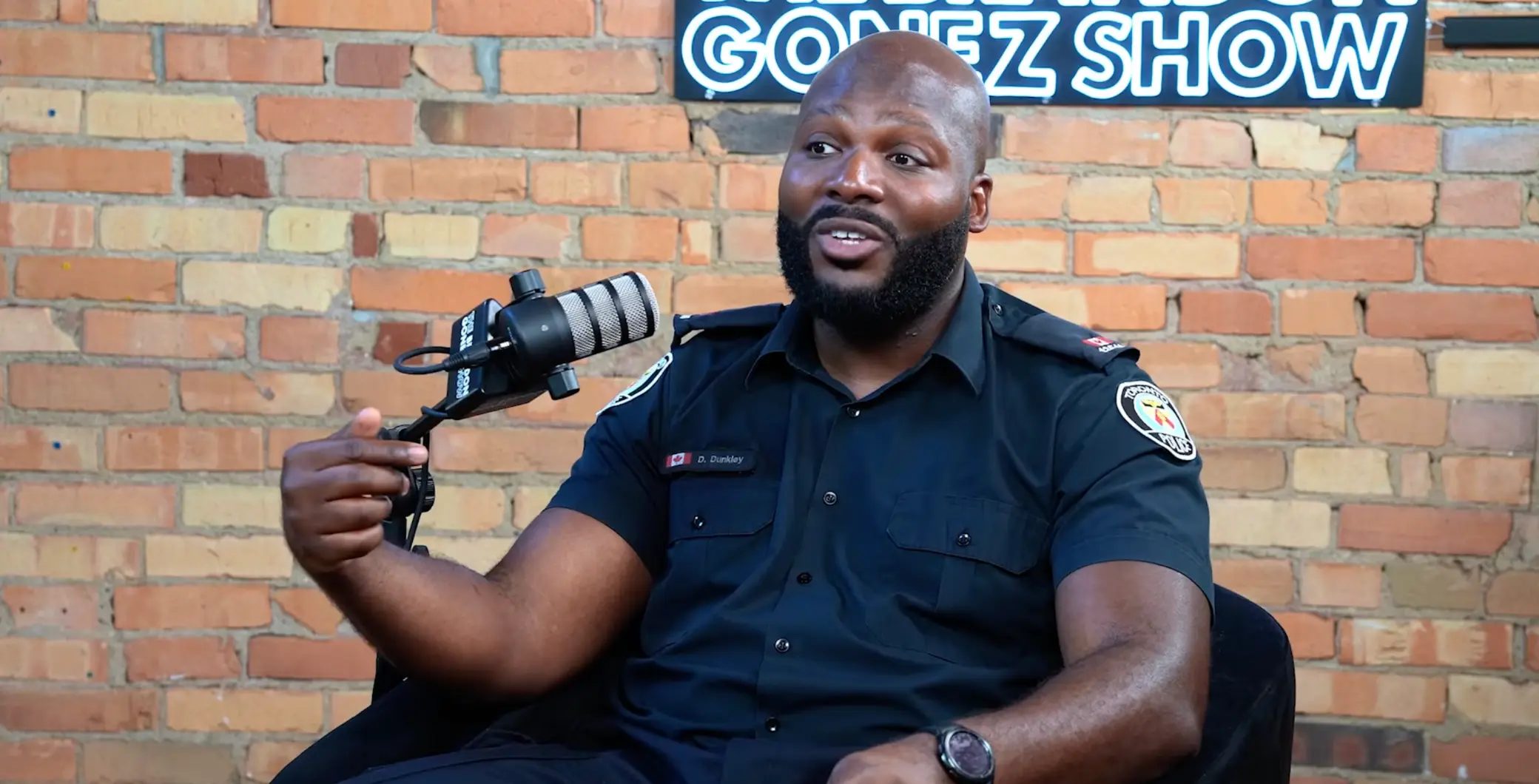Ryan Donais is the brains behind Tiny Tiny Homes, a non-profit dedicated to building small, mobile housing units to provide temporary relief to people experiencing homelessness. (Courtesy: @tinytinyhomestoronto/Instagram)
Fed up with seeing more people forced to sleep on Toronto’s streets, one local man is taking a bold step to solve the housing crisis — and it’s unlike anything you’ve seen before.
Ryan Donais is the brains behind Tiny Tiny Homes, a non-profit dedicated to building small, mobile housing units in hopes of providing temporary relief to those experiencing homelessness. Donais had come face-to-face with the increasing volume of encampments in his own neighbourhood, which fueled a desire to create real, tangible solutions.
“There’s absolutely no reason anybody should be living outside in Canada,” Donais told Now Toronto in an interview on Wednesday.
“We have enough money to house people. For some reason, the government’s choosing not to. And so, I thought I could make a difference, and started building these tiny homes.”
Donais, who has over a decade of experience in the construction industry, is mainly the sole builder of the units. Paying thousands of dollars completely out of pocket for the first model he built, he has since crowdfunded over $85,000 for purchasing materials for future units.
Each portable home, which is attached to a bicycle for mobility, is equipped with essential needs like solar-powered electricity, furnaces for heating, and running water. Donais also ensured that units contain smoke detectors and fire extinguishers to prevent fire hazards.
He has since built four homes; three in Toronto and one in Kitchener.
Donais’s initiative comes at a time when concerns about the province’s homelessness crisis is at an all-time high. On Thursday, a study released by the Association of Municipalities of Ontario (AMO) found that more than 80,000 Ontarians were known to be homeless in 2024, up by more than 25 per cent since 2022. The AMO warned that without intervention, the unhoused population could double within the next decade.
While Donais described the reception as being “absolutely fantastic,” he stresses that these homes are far from a permanent solution and has hopes that the units could eventually be used as a cost-effective form of transitional housing.
“These tiny homes are a temporary bridge between tent encampments and permanent housing. They’re not a solution to housing,” Donais emphasized.
“I don’t want people thinking that we’re just placing these homes in parks and people are going to be squatting there forever… There’s lots of places that [the city] is not utilizing. There’s so many options to just temporarily place these homes somewhere that’s not in a park, and then we can have the best of both worlds. We can get our parks back and have temporary housing for people that’s dignified and healthy.”
Donais says the city has not been in contact with him so far, but a spokesperson says it is aware of the units and is currently reviewing the situation as it involves multiple intersecting areas of municipal bylaw enforcement, such as public use of parks and streets and homelessness supports. The city also says the council is working towards expanding the shelter system across Toronto.
“The City is committed to helping as many people as possible get shelter and housing, which is why City Council approved the 10-year Homelessness Capital Services Infrastructure Strategy (HSCIS) that aims to build up to 20 new shelters by 2033. These shelters will be more cost effective and tailored to better meet the needs of individuals experiencing homelessness,” City of Toronto Senior Communications Advisor Elise von Scheel said in an email statement to Now Toronto on Thursday.
“The City continues to be creative and nimble in exploring possible shelter and housing solutions.”









